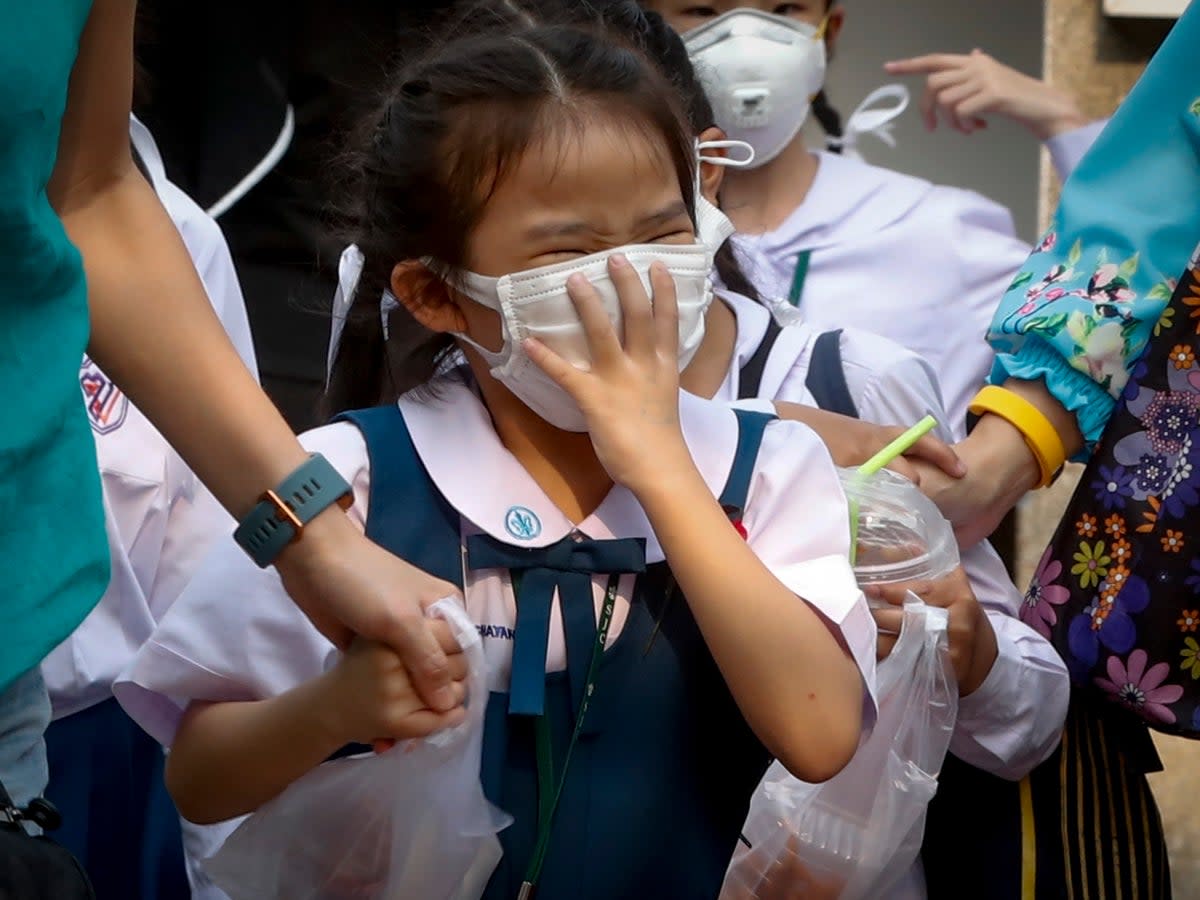Drone light show in Thailand’s skies pleads farmers to stop burning fields: ‘We can’t breathe’

Drones lit up the night sky in northern Thailand in a campaign to urge farmers to stop burning their fields.
The southeast Asian country is battling dangerous levels of air pollution that have left over a million people sick.
Phrases like “We can’t breathe”, “Please stop burning”, and “Save the North” were spelt out in the sky above the city by lights with the help of drones on Sunday night in Chiang Rai’s Muang district, which has suffered severe and worsening pollution.
Symbols and images, including face masks and a pin with the name “Chiang Rai” on it, were also created by drones to highlight the health impacts of air pollution, such as eye irritation and sore throats, according to local media reports.
The display, organised by the Radio Control Airplane Modeller Sport Association, National Research Council of Thailand and Higher Education Ministry, was a plea to farmers to stop the seasonal burning of fields.
The drone light show was held as part of a workshop on drone technology, Pisit Mitkuakul, president of the Airplane Modeller Sport Association, was quoted by The Straits Times as saying.
Thailand’s air pollution is a problem in the dry season from November to March each year and is further exacerbated by seasonal burning from farmers clearing their sugarcane and rice fields. But the smog has been particularly bad this year.
On 10 March, Thai health authorities reported that in the first nine weeks of the year, more than 1.3 million people had already suffered air pollution-related diseases. Nearly 200,000 of these cases were reported in the first week of March, when the haze started to worsen.
In some cities, the haze has grown so thick that it covers the skyline.
Air pollution just outside Chiang Mai University Sunday. (Photo ht Thiravat Hemachudha.) #Thailand #WhatsHappeningInThailand #PM25 #ฝุ่นเชียงใหม่ pic.twitter.com/mwbhNUPW2v
— Pravit Rojanaphruk (@PravitR) April 2, 2023
Levels of hazardous PM2.5 particles have also soared as thousands of people continue to arrive in hospitals, with healthcare facilities struggling to cope.
PM2.5 particles are small enough to enter the lungs and even the bloodstream, causing burning and itching in the eyes and skin, as well as coughing and chest tightness. These symptoms can be amplified for those who have pre-existing heart or lung conditions.


